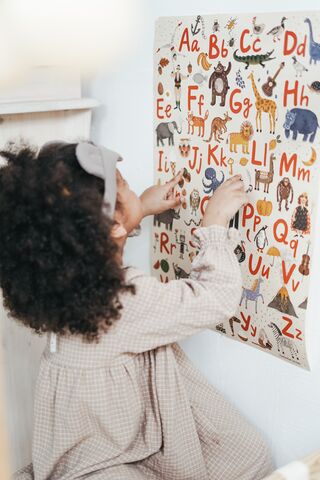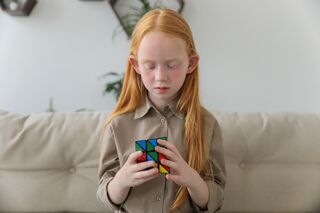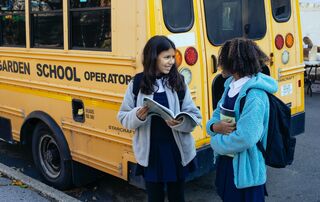Education
Why Kids Aren't Learning to Read, and How to Help
It's conversation and following the science that kids need most.
Posted February 10, 2022 Reviewed by Michelle Quirk
Key points
- If kids aren't reading, it's often because of how they're being taught or because of missed red flags.
- Kids need back-and-forth conversations to understand what they're reading.
- We know the science of reading, but much of education isn't following it.
A couple of months back, my Harvard class on educational assessment met virtually with Sondra Mims and Comer Yates, CAO and CEO of the Atlanta Speech School, who asked the class to make a few educated guesses. What percentage of white and black children were reading proficiently by the end of fourth grade, judging by the national National Assessment of Educational Progress exams? And how many children who received and did not receive free and reduced-price lunch were reading proficiently?

My students, studying for their master's in education, were notably off. They knew enough to know there was a disparity—but not enough to estimate the gap. In reality, these figures remain startling. In 2019, 76 percent of white children in the Atlanta public school were reading proficiently, versus 16 percent of black children. For children receiving free and reduced-price lunch, only 15 percent were reading proficiently, as compared with 70 percent of students who were not.
Clearly, the efforts to help kids learn to read aren’t helping. We’re thinking about teaching reading wrong. First, we’re not following the science. And, second, we’re not recognizing how much kids need conversations around books—talking about ideas in books, not just the words on the page.
More Is Not More
While the Atlanta school system is known for its inequity, these figures are similar in many parts of the United States. In some places, the overall figures are shockingly low; 7 percent of Detroit school students were reading proficiently at the end of fourth grade.
As a speech-language pathologist and mother of two kids, I've seen these problems continuing in the schools and clinics where I've worked and in the reading skills of children I've taught. Worse, even during the COVID-19 pandemic, we're continuing mostly along the same path, with teachers asked to "catch students up" through covering more content in less time.
But children aren’t just disconnected brains. Toxic stress, poverty, and trauma have academic as well as physical impacts, which we desperately need to keep in mind. If kids aren’t having their emotional and physical needs cared for, we can’t expect their academics to soar.

We Don't Follow the Science
Worse, teacher-training programs, for the most part, don't emphasize the science of reading—the phonics that a large minority of kids need to learn to read. It's a well-known science that simply isn't being communicated. It's mind-boggling—as if chemistry class simply wasn't teaching about molecules or the periodic table.
The wrongheadedness of teacher prep programs is due most likely to deep underlying beliefs, as UCLA professor Maryanne Wolf discusses, that reading is a "natural" thing, and kids will just pick it up. Really, there's a specific "reading brain" that kids need to build, through targeted support and instruction, starting in the earliest years.
We Miss the Chance to Pick Up Problems
We start paying attention to children's skills—or deficits—way too late. Even as we have increasingly good tools to see signs of dyslexia as early as four years old, missing the red flags means that we're leaving so many kids in the dust. If kids are having trouble with rhyming, say, or knowing what sound comes at the start of a word (say, what is the first sound in "fish")? these are signs that a child may struggle with basic reading skills. In my own clinical work, I've seen many young kids who clearly have many of these signs, but whose parents have been told simply to "wait and see."

It's not that we need to declare an emergency and jump into panic mode, but that we need to give these kids much more time and attention, then continue screening to check on how they are. We need more of a public health approach—say, the same as we'd take for height and weight. If a child is way under the normal weight for age, for example, we'd let the parents know, then work with them to help the child improve. We don't simply wait and see if the child will gain weight; we take a more targeted approach.
We Need Back-and-Forth Conversations
Finally, this more-targeted approach needs to start not at age five, or three, but from birth: with the back-and-forth conversations we have with kids. As much as teachers focus on reading, they don't often make the connection with oral language. They don't focus on the speaking and listening skills that form the foundation of learning to read. "Get through more books, faster," is often the message, as if speeding through words will help children learn more.

Yet, having deep conversations with kids is one of the most powerful ways to teach background information and the critical thinking skills they need to actually take ownership of what they read. Dialogic reading, in which we interrupt during reading and encourage kids to ask questions, is a known way of improving children's literacy and vocabulary skills. In the rush to cover more content and close reading gaps, we're not emphasizing the most powerful tool we have.
Such conversations can start from the time of their births, as we narrate our days and listen and watch for their responses. As they grow, children can be encouraged to talk through how characters feel, to make predictions, to summarize.
They can learn that reading proficiently doesn't simply mean reading the words on the page, or even understanding them. They can grow to see that books and the written word are a way of communicating dreams, hopes, and disappointments. Especially in a time of great upheaval and questioning, books can be a tool of empowerment—if we don't let our teaching get in the way.




